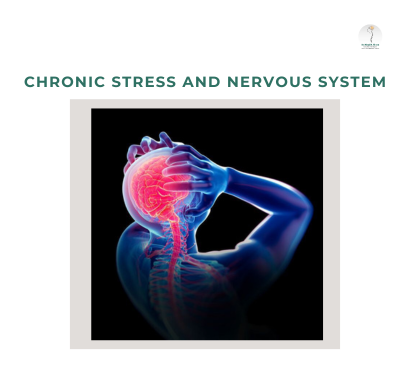In today’s fast-paced world, stress has become an almost constant companion. While short-term stress can be beneficial, chronic stress poses significant risks to our brain and nervous system. Understanding these effects is crucial for maintaining mental and neurological health.
The Physiology of Stress
When faced with a stressful situation, the body initiates a “fight or flight” response, releasing hormones like cortisol and adrenaline. This response is mediated by the Hypothalamic-Pituitary-Adrenal (HPA) axis, which regulates stress hormones and maintains homeostasis. Chronic activation of this system can lead to detrimental effects on the brain and nervous system.
Effects on the Brain
1. Hippocampus Shrinkage
The hippocampus, vital for memory and learning, is particularly susceptible to stress. Prolonged exposure to cortisol can lead to hippocampal atrophy, impairing cognitive functions.
2. Prefrontal Cortex Impairment
The prefrontal cortex governs decision-making and emotional regulation. Chronic stress can reduce its functionality, leading to poor judgment and increased susceptibility to mood disorders.
3. Amygdala Hyperactivity
The amygdala processes emotions like fear and anxiety. Stress can enlarge the amygdala, heightening emotional responses and contributing to anxiety disorders.
Impact on the Nervous System
Chronic stress affects the nervous system by:
- Altering neurotransmitter levels, leading to mood imbalances.
- Reducing neurogenesis, hindering the formation of new neurons.
- Increasing inflammation, which can damage neural tissue.
- Disrupting autonomic functions, affecting heart rate and digestion.
Long-Term Consequences
Prolonged stress can contribute to:
- Depression and anxiety disorders
- Cognitive decline and memory loss
- Increased risk of neurodegenerative diseases like Alzheimer’s
- Sleep disturbances and chronic fatigue
Managing Chronic Stress
Effective strategies include:
- Mindfulness and meditation: Enhances self-awareness and reduces stress.
- Regular physical activity: Releases endorphins, improving mood.
- Adequate sleep: Essential for brain health and stress recovery.
- Healthy diet: Nutrient-rich foods support neurological function.
- Social support: Sharing concerns with friends or professionals can alleviate stress.
FAQs
1. Can chronic stress lead to permanent brain damage?
While the brain has remarkable plasticity, prolonged stress can cause structural changes, particularly in areas like the hippocampus and prefrontal cortex. Early intervention and stress management can mitigate these effects.
2. How does stress affect memory?
Chronic stress impairs the hippocampus, crucial for memory formation, leading to difficulties in learning and recalling information.
3. Are there medical treatments for stress-induced neurological issues?
Yes, treatments may include therapy, medications, and lifestyle modifications. Consulting a healthcare professional is essential for personalized care.

